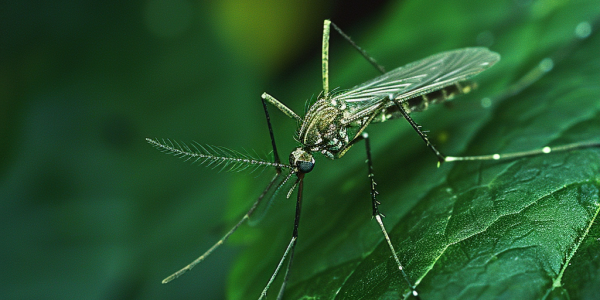Two West Nile Virus Cases Confirmed in Myrtle Beach
The South Carolina Department of Public Health has confirmed two cases of West Nile virus in Myrtle Beach, raising health concerns among residents. The city is increasing mosquito control measures to combat the spread of this virus, which is primarily transmitted through mosquito bites. Residents are advised to eliminate standing water, use insect repellent, wear protective clothing, and secure their homes to reduce the risk of infection.
Ontario Reports 17th Case of Eastern Equine Encephalitis in Horses
Ontario has reported its 17th case of Eastern equine encephalitis (EEE) in a horse this year, highlighting the urgent need for horse owners to implement preventative measures. This viral disease, transmitted by mosquitoes, poses a serious risk to equines and humans alike. Learn about the symptoms, risks, and essential strategies to protect your horses from EEE.
New York Declares Eastern Equine Encephalitis a Public Health Threat After First Human Case in Nearly a Decade
New York Governor Kathy Hochul has declared Eastern equine encephalitis (E.E.E.) a public health threat after the state’s first confirmed human case in nearly a decade resulted in a fatality. The mosquito-borne illness has prompted proactive measures, including the distribution of mosquito repellent and public education to mitigate risks. With the CDC reporting multiple cases nationwide, residents are urged to adopt preventive measures against mosquito bites to safeguard their health.
Massachusetts Raises EEE Risk Level to High in Carver and Middleboro
The Massachusetts Department of Public Health has raised the Eastern Equine Encephalitis (EEE) risk level to high for Carver and Middleboro, prompting urgent precautions against mosquito bites. Nearby towns, including Bridgewater and Lakeville, are now at moderate risk. With EEE-positive mosquitoes detected, residents are advised to wear protective clothing, use insect repellent, and eliminate standing water to reduce exposure. Stay informed and safeguard your health this summer.
Boston Officials Warn of West Nile Virus in Mosquitoes
Boston officials confirm mosquitoes have tested positive for West Nile virus, prompting health alerts. While no human cases have been reported this year, residents are urged to take preventive measures, such as avoiding outdoor activities at dusk, using EPA-approved insect repellents, and eliminating standing water to reduce mosquito breeding. Stay informed and protect your health this mosquito season.
Virginia Tech Scientists Develop Genetic Strategies to Combat Mosquito-Borne Diseases
Virginia Tech scientists are advancing mosquito control by using genetic manipulation to combat diseases like Zika and dengue. Their research identifies genetic incompatibilities in mosquito populations, aiming to create all-male populations that could drastically reduce female numbers and disease transmission. This innovative approach promises a sustainable alternative to traditional insecticides, addressing both public health and environmental concerns.
Dengue Fever Cases Soar 232% in the Americas Amid Health Concerns
Dengue fever cases have surged by 232% in the Americas this year, with nearly 10.4 million reported infections. Health officials are urging preventive measures such as eliminating standing water, using insect repellent, and community engagement to combat this mosquito-borne disease. Understanding symptoms and seeking early medical attention are crucial to managing dengue effectively.
Health Risks Loom as Paris 2024 Olympics Approach
As the Paris 2024 Olympics approach, health risks for athletes and visitors are raising concerns. With pollution in the Seine and the rise of vector-borne diseases like dengue fever, health experts warn about potential threats. Precautions, including mosquito bite prevention and respiratory hygiene, are essential for a safe Olympic experience.
First Human Case and Death from West Nile Virus Reported in Oklahoma
The Oklahoma State Department of Health reports the first human case and death from West Nile Virus in the state. With summer approaching, the risk of encountering infected mosquitoes increases. Learn how to protect yourself and recognize symptoms to prevent the spread of the virus.
Jamestown Canyon Virus Detected in Orono, Maine
Concerns rise in Orono, Maine as Jamestown Canyon Virus is detected in mosquitoes. Learn about symptoms, prevention tips, and updates on the situation from the Maine CDC.










